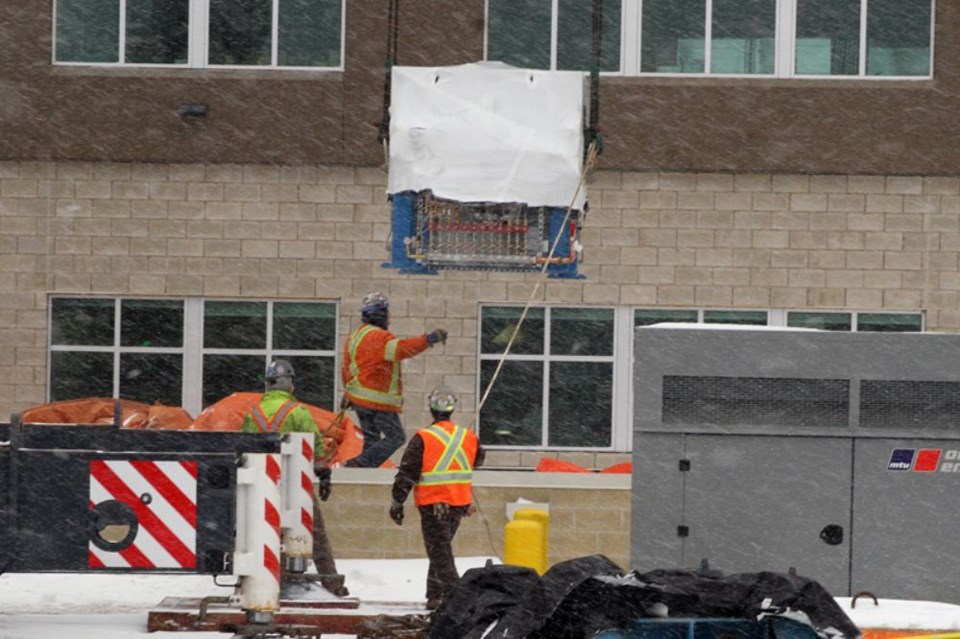THUNDER BAY -- Mike Campbell joked the next time he has a cyclotron put in, he’ll wait until July.
Winter weather aside, the director of cyclotron operations for the Thunder Bay Regional Research Institute said Tuesday’s installation of the $3.5-million, 28-tonne machine does not get them to the finish line, but he’s confident they’ll be producing research-quality isotopes by summertime.
Medical isotope production should follow soon afterward.
“This is a huge milestone,” Campbell said. “It’s one we’ve been waiting for, for many years.”
Getting it into the recently constructed six-story Health Services Centre wasn’t easy.
“It was a bit of a challenge, because the building construction actually started before the cyclotron bunker did because we were waiting for our licence from the Canadian Nuclear Safety Commission to start construction,” Campbell said.
“So they actually had to build the building around where the bunker was going to ultimately be and leave a hole in the building for us to slot it into.”
Arriving from Vancouver on a truck, it was uncrated in the parking lot and used an engineered lift plan to maneuver the cyclotron into place and lower it into its bunker.
“We looked at how far the outriggers would have to be and all the details to make sure they could lift it safely into the bunker.”
Medical isotopes are safe radioactive markers used to help diagnose a variety of health conditions, including cancer, and problems affecting the heart and circulatory systems.
Most of Canada’s supply comes from the National Research Universal reactor in Chalk River, Ont., which the federal government has said it plans to close.
Last summer that led to a severe shortage of medical isotopes, as the Chalk River facility produces as many as 40 per cent of the world’s supply.
Having a ready supply in Thunder Bay is increasingly important, Campbell said, noting they purchased a slightly larger cyclotron to produce isotopes with longer half-lives. That makes them more marketable around the country.
“By doing that we’re able to ship those other parts of Canada, so we’re going to be part of the solution when Chalk River ultimately stops producing medical isotopes to make sure that patients across Canada have a safe supply,” Campbell said.
